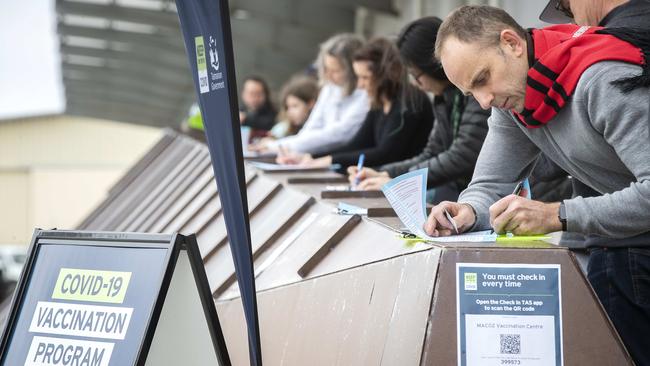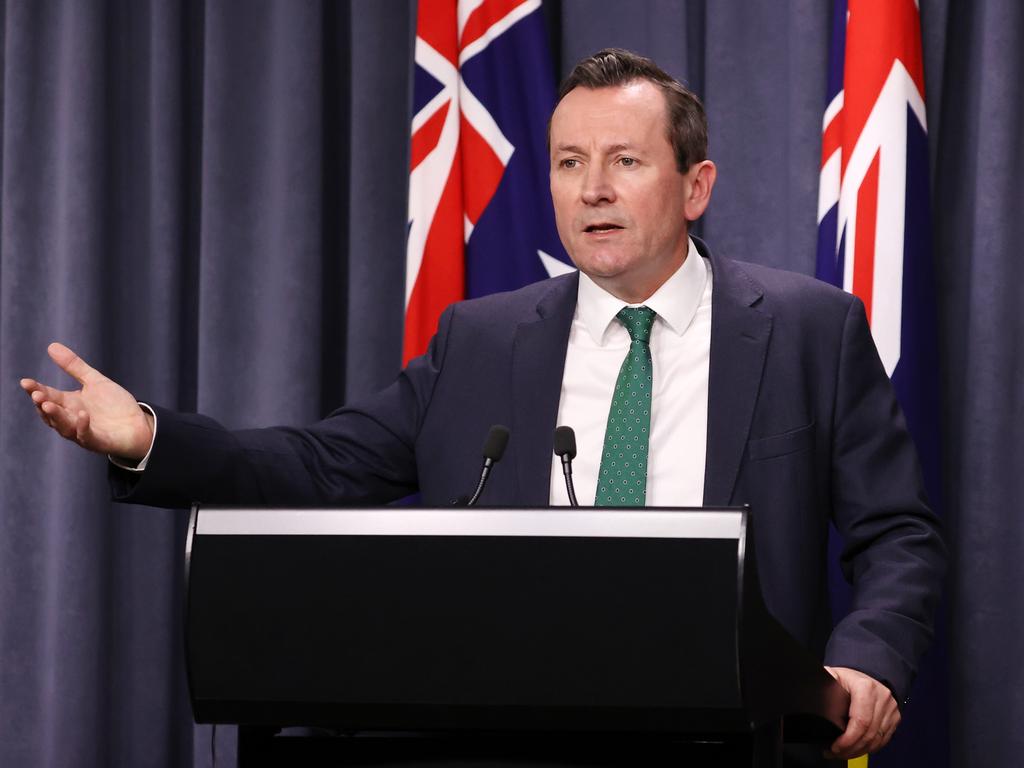Reopening vital to nation’s economic and mental health

If states and territories do not adhere to the plan agreed at national cabinet, the cost in terms of lives and livelihoods will be unacceptably and unnecessarily high. Jobs will be lost. Businesses will close. The debt burden will rise. Australians’ wellbeing will suffer.
Former Australian of the Year and psychiatrist Patrick McGorry has spoken of a “shadow pandemic” in our midst. As a result of Covid-19, he has said, “a substantial minority of Australians will develop a new episode of mental ill-health to a degree that justifies and requires professional help”.
Recent figures out of our two locked-down states, Victoria and NSW, are alarming. It has been reported that in Victoria more than 340 teenagers a week are ending up in hospital with mental health emergencies. These numbers are an 83 per cent rise on last year and a 162 per cent increase on 2019. Teenage girls are particularly affected, suffering anxiety, depression, eating disorders and suicidal tendencies.
In the past year, in NSW, about 8500 people under the age of 18 presented at emergency departments for self-harm and suicidal thoughts. This is up nearly 50 per cent on pre-pandemic levels.
The fact that kids in Victoria and NSW are not in school, where they can learn with their teachers and socialise with their friends, is having a profound impact on their behavioural development and educational outcomes. In Victoria, kids have been out of the classroom for more than 200 days. This is too long and it can’t go on. We must learn to live with the virus in all aspects of our lives. Elimination is a fallacy and vaccines are the only answer.
Illustrative of the protection offered by vaccines is the fact that, despite the number of cases in the Victorian wave last year and the NSW outbreak this year being relatively similar, at 18,000 cases, the death rates are remarkably different. Tragically, Victoria saw more than 800 deaths last year. NSW has seen over 80 lives lost. The reduction in deaths as a proportion of the number of cases has been almost 90 per cent.
As vaccination rates continue to increase, and more supply comes online, we have to change the national conversation from one of fear about getting the virus to one of living safely and realistically with it. It is not about saying “let it rip” or removing all restrictions, it is about a proportionate, evidence-based response, consistent with the National Plan.
As the Doherty Institute has said: “There is light at the end of the tunnel. Once we achieve 70 to 80 per cent vaccination, we will see less transmission of Covid-19, fewer people with severe illness, and therefore fewer hospitalisations and deaths.”
Just as there is a strong mental health imperative for opening up, there is a strong economic one. As a government we have pulled out all stops and provided an unprecedented amount of economic support to cushion the blow of Covid-19 and build a bridge to the other side. Most importantly, this has prevented the scarring of the labour market, which has characterised previous recessions. Treasury warned last year, unemployment could reach as high as 15 per cent. Today it is at 4.6 per cent, a 12-year low.
But the national accounts, out this week for the June quarter, and the September quarter, out later in the year, will demonstrate the significant and detrimental impact lockdowns are having on our economy. But it is not just the decline in economic activity caused by lockdowns, running at about $2bn a week, that hits the budget bottom line. It is also the cost of our fiscal support, which is running at over $1bn a week. This level of economic support cannot continue indefinitely.
Critical to Australia’s recovery is allowing businesses the opportunity to reopen their doors, welcome back their customers and contribute to their communities. Many are just holding on, with uncertainty hanging over their heads. They cannot plan a week, let alone a month, ahead because they do not know whether the states and territories will stick to what was agreed at national cabinet. This is why it is so vital that all jurisdictions demonstrate their commitment to reopening at 70 to 80 per cent.
Business must also continue to beat the drum and make its case for opening up. With more than eight out of 10 Australians employed in the private sector, business has an important and powerful voice.
Recent days have seen senior business leaders such as Alan Joyce, Jennifer Westacott, Rob Scott and Kerry Stokes calling for the economy to safely reopen.
It is a vital message that needs to be repeated by them and others, again and again. With the vaccination targets now in sight, we need to hear more of it. It gives people hope and it holds governments at all levels and of all persuasions to account for their commitment to the plan.
The last 18 months have tested Australians like rarely before. Covid-19 is not over and there are challenges ahead. But the rapidly rising vaccination rate provides a way forward. This is why we must stick to the plan. The health of our economy, and the wellbeing of our community, depends on it.
Josh Frydenberg is the federal Treasurer




There are two key reasons Australia must bring stringent lockdowns and border closures to an end at vaccination rates of 70 to 80 per cent – our economy and people’s mental health. One has a quantifiable financial cost; the other is harder to measure, but is even more important.